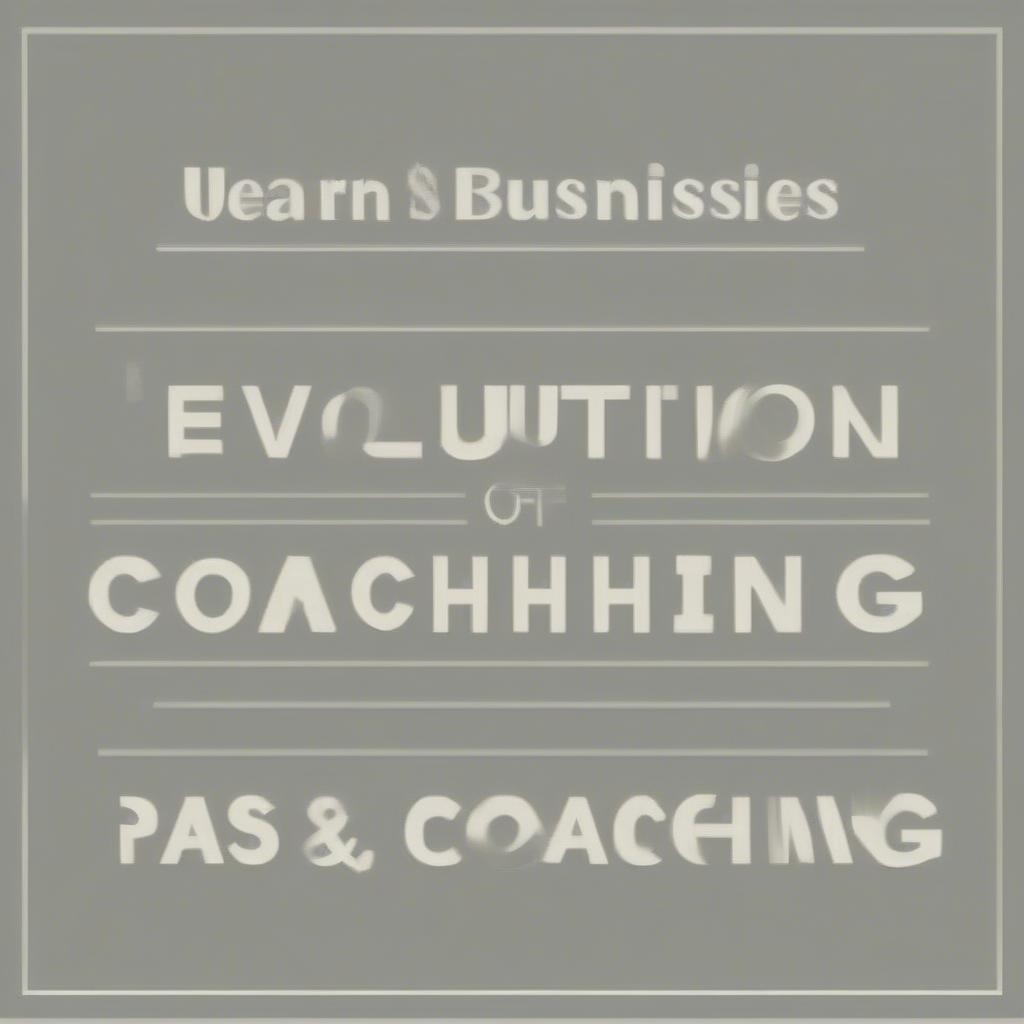
Coaches, you’re masters at guiding others, but are you effectively guiding potential clients into your world? Email marketing, when done right, isn’t just about broadcasting; it’s about building meaningful connections that convert prospects into committed clients. This article will dive deep into actionable strategies to transform your coaching email campaigns from a chore into a powerful engine for growth. We’ll explore how to skyrocket client engagement and implement effective email strategies that resonate with your audience.
Why Email Marketing Matters for Coaches
Before we get into the "how," let’s tackle the "why." Why should coaches prioritize email marketing when social media and other platforms exist?
Direct Communication
- Avoid the Algorithm: Unlike social media, where your content is at the mercy of ever-changing algorithms, email delivers your message directly to the inbox of your audience. This ensures that your message is seen, or at least has a higher chance of being seen.
- Personalized Connection: Email allows for highly personalized communication. You can segment your audience and tailor messages based on their interests, pain points, or stage in their journey. This builds rapport and a feeling of being understood.
- Owned Platform: You control your email list. You’re not building your presence on rented land like you are with social media platforms. This gives you a stable and reliable platform for marketing.
Building Trust and Authority
- Consistent Nurturing: Email marketing allows you to nurture leads over time by providing valuable content, sharing your expertise, and demonstrating the value you bring as a coach.
- Showcase Expertise: You can use emails to share your thought leadership, case studies, and client success stories, positioning yourself as a go-to expert in your niche.
- Relationship Building: Email isn’t just about sales; it’s about building relationships. Consistent and helpful emails build trust and rapport, making it more likely that your audience will eventually become clients.
Cost-Effective Marketing
- High ROI: When done right, email marketing has a very high return on investment, especially compared to paid advertising.
- Scalable Solution: It’s a scalable way to reach a large audience without significantly increasing your costs.
- Targeted Reach: You can reach very specific audiences with email marketing, ensuring that you’re talking to people who are likely to be interested in your services.
What Email Marketing Can Achieve for Coaches
- Lead Generation: Capturing the contact information of potential clients interested in your coaching services.
- Client Onboarding: Guiding new clients through the initial stages of the coaching process.
- Nurturing Leads: Building relationships with interested prospects over time, moving them towards becoming clients.
- Client Retention: Staying engaged with current clients, encouraging repeat business and referrals.
- Promotion of Services: Launching new coaching programs, workshops, or products.
Essential Components of Effective Coaching Email Campaigns
Okay, we’ve established why email is crucial for your coaching email campaigns. Now let’s delve into the essential elements that make emails effective.
Building a Solid Email List
- Ethical Growth: Always prioritize ethical email list building. Never buy email lists, as they are often ineffective and can damage your sender reputation.
- Lead Magnets: Offer valuable freebies like checklists, templates, mini-courses, or webinars in exchange for email addresses.
- Clear Call to Actions: Make it easy for people to subscribe. Place signup forms prominently on your website, social media, and landing pages.
- Consent: Always ensure you have explicit consent to send emails. Provide a clear unsubscribe option in every email.
Creating Compelling Subject Lines
- Intrigue and Curiosity: Craft subject lines that spark curiosity and make people want to open the email.
- Personalization: Use personalization tokens (e.g., names) to grab attention.
- Urgency: Use words that create a sense of urgency (e.g., "Limited Time Offer") when relevant.
- Clarity: While intrigue is good, be sure your subject line accurately reflects the content of the email.
- A/B Testing: Experiment with different subject lines to see what works best for your audience.
Crafting Engaging Email Content
- Value First: Prioritize providing value in your emails. Offer actionable tips, helpful resources, and insightful advice.
- Personal Tone: Write in a conversational, human tone, as if you’re speaking directly to one person.
- Storytelling: Share your journey, your clients’ success stories, or relatable anecdotes to make your content more engaging.
- Clear and Concise: Keep your emails short and to the point. Respect people’s time and make your message easy to digest.
- Visual Appeal: Use white space, bullet points, and images to break up text and make your email visually appealing.
Effective Call to Actions (CTAs)
- Clear Direction: Tell readers what you want them to do. Use action-oriented words like "Book a Call," "Download Now," or "Learn More."
- Prominent Placement: Make your CTAs stand out. Use buttons, bold text, or different colors.
- Limited Choice: Avoid giving too many options. Focus on one primary CTA per email.
- Testing and Optimization: Test different CTAs and placements to see what performs best.
Email Segmentation
- Targeted Messaging: Segment your list based on audience demographics, interests, pain points, or stage in their coaching journey.
- Increased Relevance: Segmentation allows you to send more targeted and relevant emails, leading to higher engagement and conversion rates.
- Personalized Communication: It moves you away from blanket messaging, making your email marketing more effective overall.
Consistent Email Schedule
- Regular Communication: Establish a consistent email schedule. Whether it’s weekly or bi-weekly, let your audience know when to expect your emails.
- Consistency Breeds Familiarity: Consistent communication helps build familiarity and keeps you top of mind.
- Avoid Over-Communication: Be mindful not to overwhelm your subscribers. Find a frequency that works for your audience.
- Test Different Cadences: Experiment with different sending times and days to see what works best for you.
Measuring Results
- Track Key Metrics: Monitor open rates, click-through rates, conversion rates, and unsubscribe rates.
- Identify What Works: Analyzing your metrics will help you understand what’s working and what isn’t.
- Continuous Improvement: Use data to optimize your email strategies and improve future campaigns.
- Learn from Mistakes: Don’t be afraid to experiment and learn from your successes and mistakes.
Specific Email Strategies for Coaches
Now, let’s get practical and explore specific email strategies that can elevate your coaching email campaigns and boost client engagement.
Welcome Series
- First Impressions Matter: Your welcome series is your first opportunity to make a strong impression.
- Introduce Yourself: Share your story, your coaching philosophy, and what subscribers can expect from you.
- Deliver on Your Promise: Make sure to deliver the lead magnet you promised.
- Establish Value: Provide immediate value by offering helpful tips or resources.
- Set Expectations: Clearly communicate what your readers will receive from you and how often.
- Example:
- Email 1: "Welcome to the Community! Here’s Your [Lead Magnet Name]."
- Email 2: "My Story and Why I’m Passionate About Coaching."
- Email 3: "3 Simple Steps to Achieve [Relevant Goal]."
- Email 4: "How I Can Help You (And How to Book a Call)."
Nurturing Sequences
- Build Relationships: Nurturing sequences are designed to build relationships and guide leads through the sales funnel.
- Share Valuable Content: Provide helpful articles, videos, or case studies that address your audience’s pain points.
- Offer Social Proof: Share testimonials from satisfied clients.
- Address Objections: Anticipate and address potential concerns or objections.
- Example:
- Email 1: "The Biggest Mistake Most People Make When Trying to Achieve [Goal]."
- Email 2: "Client Success Story: [Client Name]’s Amazing Transformation."
- Email 3: "Overcoming the Common Obstacle of [Obstacle] in Your Journey."
- Email 4: "Are You Ready to Make a Change? (Book a Call With Me)."
Educational Emails
- Showcase Expertise: Educate your audience on topics related to your coaching niche.
- Demonstrate Value: Position yourself as a thought leader by sharing valuable information and actionable tips.
- Build Authority: Consistent educational emails build trust and authority.
- Example: "3 Tips to Overcome Procrastination," "The Ultimate Guide to Goal Setting," "How to Develop a Growth Mindset."
Promotional Emails
- Strategic Promotion: Promote your coaching programs, workshops, or products strategically.
- Offer Limited-Time Deals: Create a sense of urgency with special discounts or bonuses.
- Focus on Benefits: Highlight the benefits of your offer, not just the features.
- Example: "New Coaching Program Launch: [Program Name]," "Limited-Time Discount: Get 20% Off This Week," "Join My Workshop: [Workshop Name] and Transform Your Life."
Testimonial and Case Study Emails
- Social Proof: Use testimonials and case studies to demonstrate the value of your coaching services.
- Share Real Results: Let your clients do the talking by sharing their stories and achievements.
- Build Trust: This social proof builds credibility and helps convert hesitant leads.
- Example: "See How [Client Name] Achieved [Specific Goal] With My Coaching," "[Client Name]’s Story: From Stuck to Thriving," "Real Results, Real People: Hear What Our Clients Are Saying."
Engagement Emails
- Spark Conversation: Send emails that encourage your audience to engage with you.
- Ask Questions: Ask questions related to their struggles or goals.
- Run Polls and Surveys: Get feedback from your audience and learn more about their needs.
- Example: "What’s Your Biggest Challenge Right Now?," "Share Your Success Stories With Me," "Take Our Poll: What’s Your Preferred Way of Learning?"
Re-Engagement Emails
- Win Back Inactive Subscribers: Re-engage subscribers who haven’t interacted with your emails in a while.
- Offer a Special Incentive: Provide a special discount or bonus to entice them to come back.
- Update Preferences: Give them the option to update their preferences or unsubscribe.
- Example: "We Miss You! Here’s a Special Offer Just For You," "Still Interested in [Your Coaching Topic]?," "Update Your Preferences."
Practical Tips for Implementing Your Email Strategy
- Choose the Right Email Service Provider (ESP): Select an ESP that meets your needs and budget. Popular options include Mailchimp, ConvertKit, ActiveCampaign, and SendinBlue.
- Create Email Templates: Use templates to maintain a consistent brand identity and save time.
- A/B Test Everything: Test different subject lines, content, and CTAs to optimize your emails.
- Automate When Possible: Automate welcome sequences, nurturing campaigns, and other repetitive tasks.
- Be Consistent: Maintain a consistent sending schedule.
- Personalize Your Emails: Use personalization tokens to tailor your emails.
- Segment Your Audience: Send targeted emails to specific segments of your list.
- Monitor Your Metrics: Track open rates, click-through rates, conversion rates, and unsubscribe rates.
- Don’t Be Afraid to Experiment: Try new things and see what works best for you and your audience.
- Be Patient: Building a successful email list and engagement takes time.
Learn Business: Your Partner in Coaching Success
Now, as you navigate the intricacies of email marketing, remember that you don’t have to go it alone. Learn Business understands the challenges faced by coaches and entrepreneurs. We provide the guidance and templates you need to streamline your business operations, including those crucial coaching email campaigns.
How Learn Business Supports Coaches:
- Tailored Templates: Access a vast library of customizable email templates designed specifically for coaches, including welcome sequences, promotional campaigns, engagement emails, and more.
- Step-by-Step Guidance: Our comprehensive resources offer clear, step-by-step guidance on how to implement effective email strategies, even if you’re a beginner.
- Time-Saving Solutions: Save time and effort with our ready-to-use templates and checklists, allowing you to focus on what you do best – coaching.
- Boosted Efficiency: Learn Business helps you streamline your email marketing, allowing you to engage potential clients effectively and efficiently.
- Increased Conversions: By using our resources, you’ll be able to create compelling email campaigns that convert prospects into loyal clients.
We believe that every coach deserves the support they need to thrive. That’s why we’ve designed Learn Business to be your trusted partner on your entrepreneurial journey. From email marketing to business operations, we’ve got you covered.
Conclusion
Email marketing for coaches isn’t just about sending emails; it’s about cultivating meaningful relationships, showcasing your value, and guiding potential clients into your world. By implementing the strategies discussed in this article, you’ll elevate your coaching email campaigns, boost client engagement, and see your coaching practice flourish. Remember, consistency, personalization, and providing real value are the key ingredients for email marketing success. Let’s begin transforming your emails into a power tool that helps you reach, impact, and guide the lives of your potential clients. With consistent effort and the right strategies, your email list will become a wellspring of opportunity, propelling your coaching business forward.



Leave a Reply